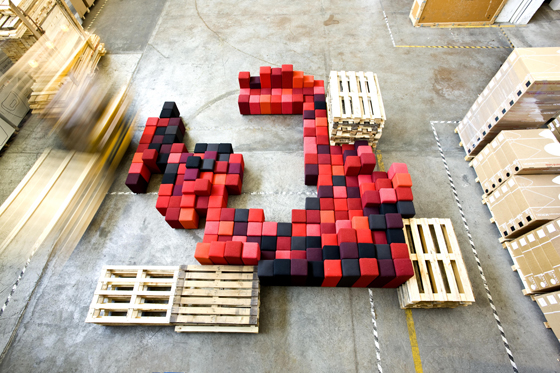The Fabrics of Moroso
Text von Frame Publishers
Niederlande
15.10.14
Given that Patrizia Moroso has a history of mingling with artists and cartoonists, it’s not surprising that the objects produced by the brand founded by her father, Agostino are visually compelling. Thanks to the art director’s eye for organic shapes and her feel for materials the Italian company rose to the main stage in the 1980s and has been a powerhouse ever since.
Designed by Giorgia Zanellato and Daniele Bortotto, the Il Doge sofa (2014) from the Serenissima collection is covered in patterned silk to recall the aesthetic of plaster corroded by saltwater
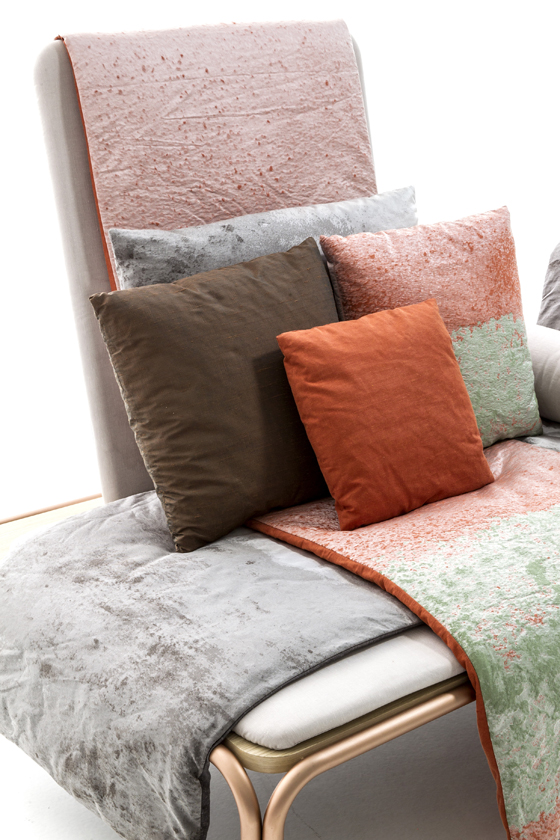
Designed by Giorgia Zanellato and Daniele Bortotto, the Il Doge sofa (2014) from the Serenissima collection is covered in patterned silk to recall the aesthetic of plaster corroded by saltwater
×Given that Patrizia Moroso has a history of mingling with artists and cartoonists, it’s not surprising that the objects produced by the brand founded by her father, Agostino – and now helmed by Patrizia and brother Roberto – are visually compelling. Thanks to the art director’s eye for organic shapes and her feel for materials – and to the talent of designers like Ron Arad, Massimo Iosa Ghini, Patricia Urquiola, Ross Lovegrove and Toshiyuki Kita – the Italian company rose to the main stage in the 1980s and has been a powerhouse ever since. According to Patrizia, each Moroso product needs to answer a question. ‘There are rarely new questions,’ she tells me, ‘but a sofa, a chair or a table can have an innovative surface, colour or form. Our products always provide an original answer.’
Patrizia Moroso is the art director of the brand founded by her father, Agostino. Photographer: Anna Bussolotto
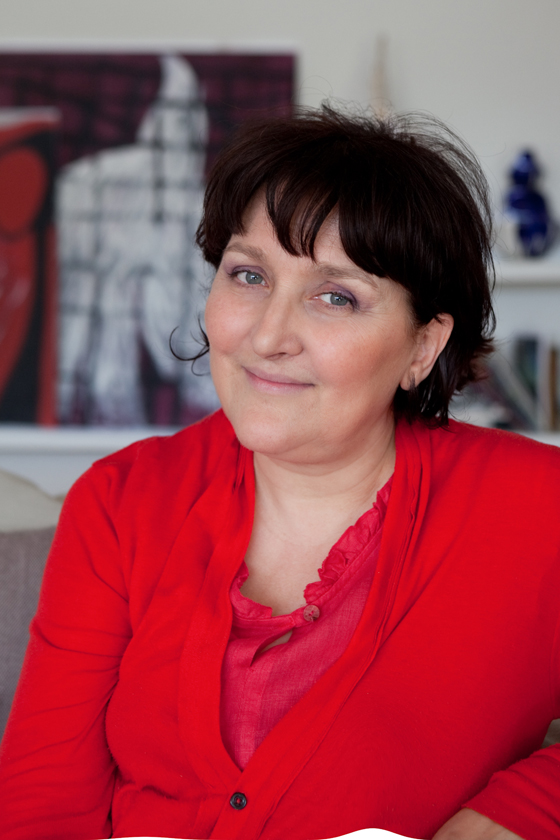
Patrizia Moroso is the art director of the brand founded by her father, Agostino. Photographer: Anna Bussolotto
×Colour has been a key factor in the brand’s designs. The 1988 Saruyama sofa by Toshiyuki Kita, for example, is modelled by light itself, like a Brâncuşi sculpture. ‘Saruyama was the first product with a fabric covering,’ she says. ‘I was looking for a strong, beautiful cloth with a striking colour, but not tacky. And then I came across this small Danish company called Kvadrat.’ As soon as she saw how the Danes worked and the colours they used, she knew Kvadrat’s products were perfect for organic shapes. ‘The coloured fabric had no visible weave. That’s why it could become something abstract, universal.’
The Italian company rose to the main stage in the 1980s and has been a powerhouse ever since
According to Patrizia, each Moroso product needs to answer a question. 'There are rarely new questions, but a sofa, a chair or a table can have an innovative surface, colour or form. Our products always provide an original answer'
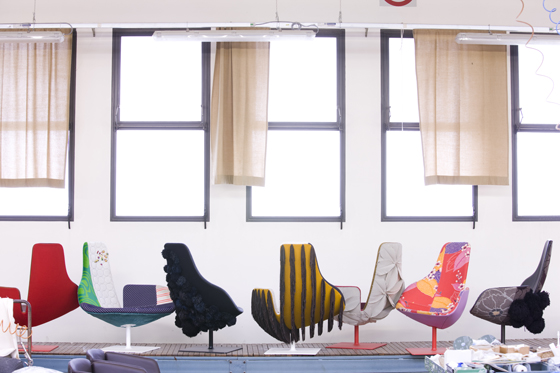
According to Patrizia, each Moroso product needs to answer a question. 'There are rarely new questions, but a sofa, a chair or a table can have an innovative surface, colour or form. Our products always provide an original answer'
×The art director’s eye for organic shapes and her feel for materials with the talent of designers like Ron Arad, Massimo Iosa Ghini, Patricia Urquiola, Ross Lovegrove and Toshiyuki Kita led to their sustained success
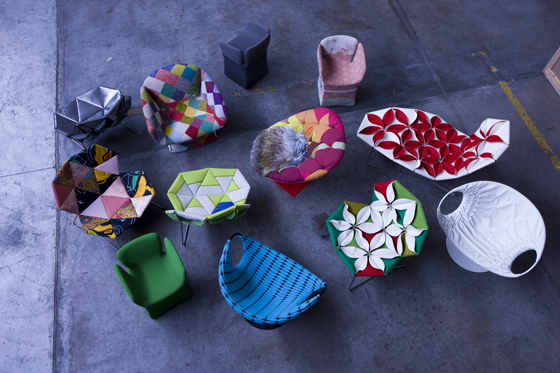
The art director’s eye for organic shapes and her feel for materials with the talent of designers like Ron Arad, Massimo Iosa Ghini, Patricia Urquiola, Ross Lovegrove and Toshiyuki Kita led to their sustained success
×When Ron Arad came along, with soft objects like Big Volume, Moroso continued to use fabric. ‘I think cloth is timeless,’ she says, explaining that fabric hides structural elements and wraps an object completely, creating a coherent entity. Fabric also allows a finished object to be further developed. As it’s easier to redo the skin than to reconstruct the bones, a product can be given new life with a surface makeover. ‘If we find new and better materials, we can simply change the upholstery. It’s important to keep a successful design alive.’
It's easier to redo the skin than to reconstruct the bones, a product can be given new life with a surface makeover
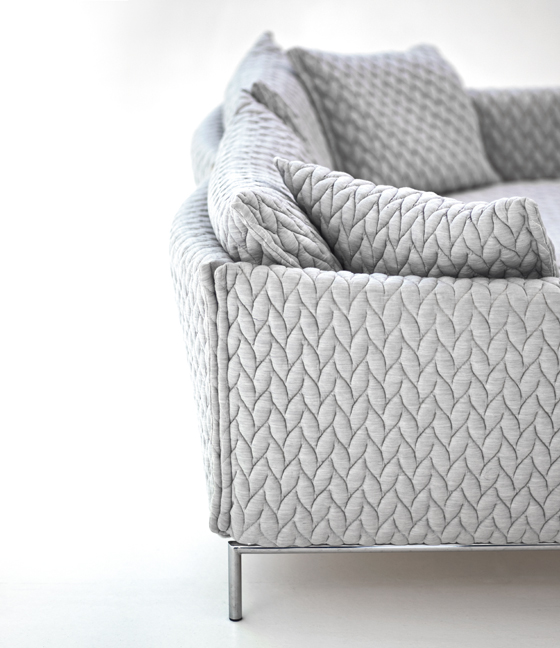
It's easier to redo the skin than to reconstruct the bones, a product can be given new life with a surface makeover
×Moroso entered a new era in 1999 with the arrival of Patricia Urquiola. ‘Before that, we’d taken a very formal approach to design, but instead of changing the shapes of objects, Patricia focused on surfaces, materials and colours.’ With the Spanish designer came a synthesis of old and new. ‘There is only the present. She turns a classic sofa into something else.’ The new wave meant a new perspective on surfaces as well.
Fabric hides structural elements and wraps an object completely, creating a coherent entity. Fabric also allows a finished object to be further developed
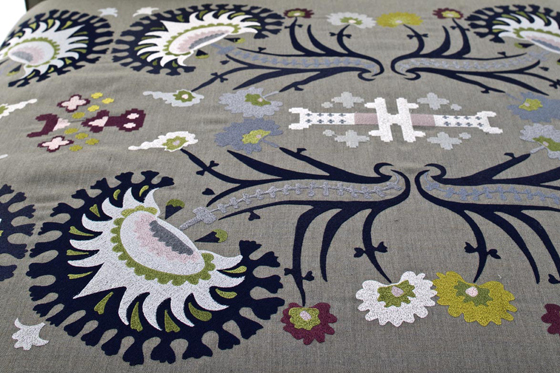
Fabric hides structural elements and wraps an object completely, creating a coherent entity. Fabric also allows a finished object to be further developed
×A focus on surfaces doesn’t mean superficiality; on the contrary, Moroso has received environmental certification for its sustainable approach to design. ‘As I mentioned, we work with Kvadrat, which has all possible certifications. We use only pure materials: 100 per cent cotton and virgin wool. Those are the basics.’ Moroso was an eco-friendly company even before environmental awareness became a macro trend. ‘We were among the first to distribute a whole range of cottons and hemp, produced by one of the few Italian companies that worked with entirely organic methods.’
Craftspeople and tailors put the finishng touches on products like Edward van Vliet's Sushi Block Seat at Moroso's headquarters in Udine
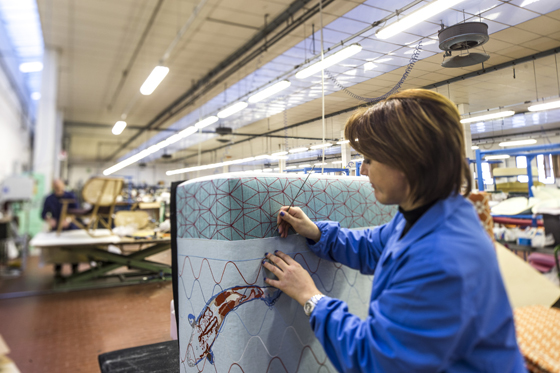
Craftspeople and tailors put the finishng touches on products like Edward van Vliet's Sushi Block Seat at Moroso's headquarters in Udine
×A focus on surfaces doesn’t mean superficiality; on the contrary, Moroso has received environmental certification for its sustainable approach to design
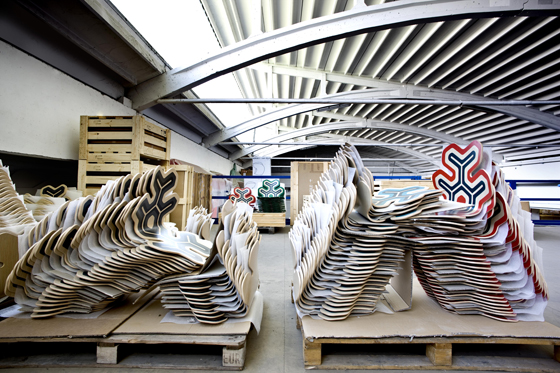
A focus on surfaces doesn’t mean superficiality; on the contrary, Moroso has received environmental certification for its sustainable approach to design
×---


